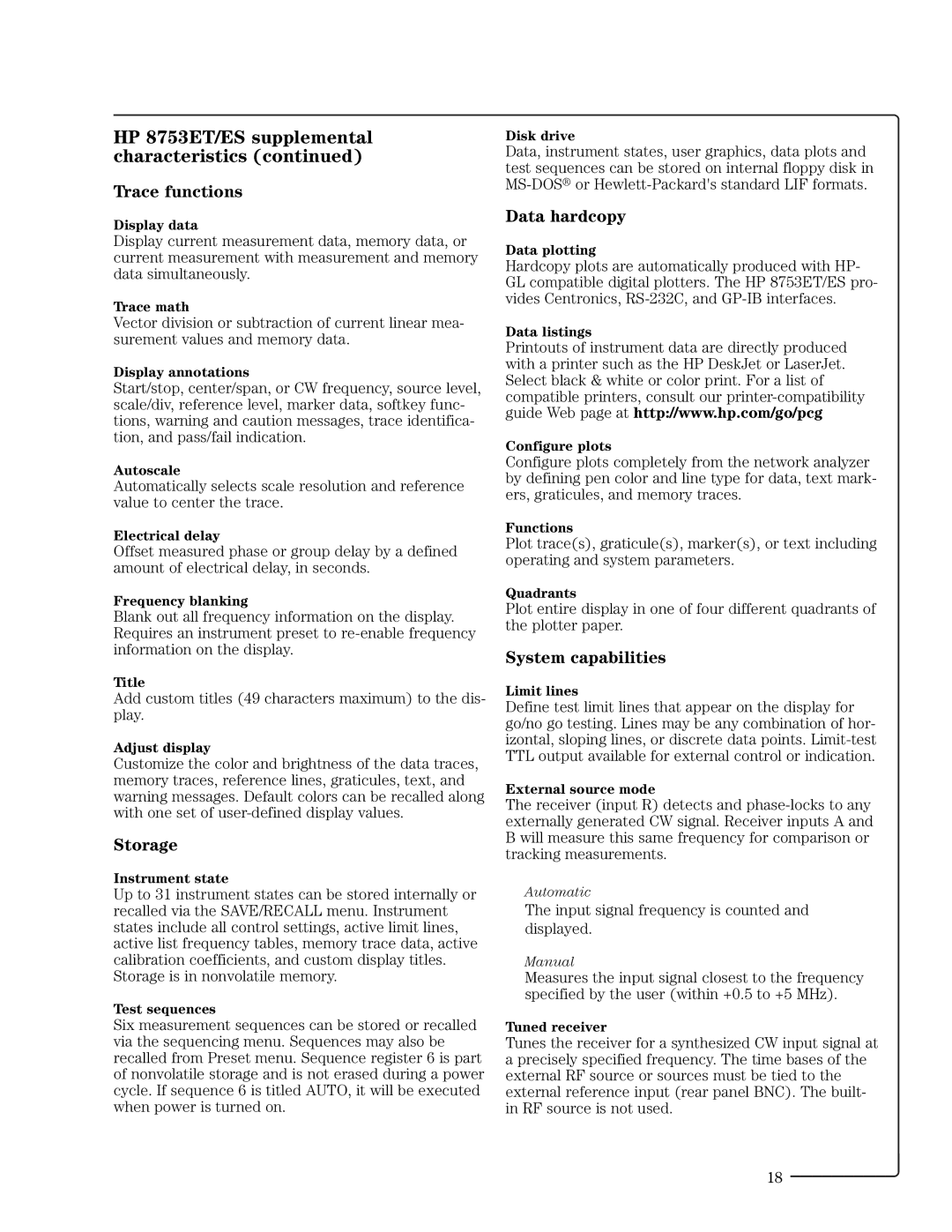8753ET specifications
The HP 8753ET is a sophisticated vector network analyzer designed to meet the demands of RF and microwave engineering applications. This instrument is renowned for its ability to provide high-performance measurements in a compact form factor, making it a favorite among engineers and technicians alike.One of the main features of the HP 8753ET is its ability to perform a wide array of network analysis functions. It supports S-parameter measurements, allowing for the characterization of the linearity and performance of RF circuits. With the ability to measure reflection, transmission, and impedance characteristics, users can gain deep insights into their device under test (DUT).
An essential aspect of the HP 8753ET is its frequency range capability. It typically covers frequencies from 300 kHz to 6 GHz, which is ideal for a vast range of applications, including telecommunications, radar, and electronic warfare.
The HP 8753ET is equipped with advanced analysis features such as time-domain reflectometry (TDR) and gating capabilities. This enables engineers to identify and analyze impedance mismatches and faults over a defined time window, helping to troubleshoot and optimize RF systems effectively.
Another notable technology integrated into the HP 8753ET is its user-friendly interface that combines an easy-to-navigate display with direct access to measurement functions. This minimizes the learning curve for new users while enhancing productivity for experienced professionals.
The analyzer also supports various calibration techniques, ensuring accurate and repeatable measurements. The built-in calibration kits help improve the reliability of the results while compensating for any systematic errors associated with the test setup.
Additional characteristics of the HP 8753ET include its capability for both single-port and two-port measurements. This versatility allows users to conduct a complete array of S-parameter measurements with confidence.
Furthermore, the HP 8753ET features a storage function that allows users to save and recall measurement setups and results. This capability streamlines workflows and provides easy access to historical data for review or further analysis.
Ultimately, the HP 8753ET stands out as an essential tool for engineers in the RF and microwave domain. Its combination of high-performance measurement capabilities, an intuitive interface, and flexibility makes it a preferred choice for anyone seeking reliable and thorough network analysis in their testing and development projects.

